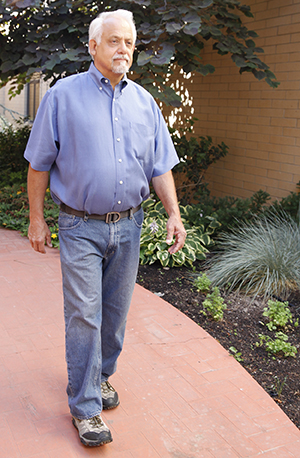If your health care provider gives you a home walking program, be sure to follow it. If you aren't given a specific program, follow these tips:
-
Start by walking 4 to 6 times a day. Walk for 5 to 10 minutes each time or as long as you can tolerate. There is not an upper limit on walking, but don't overdo it. Doing too much too early can set you back.
-
Do this 5 days a week. Rest the other 2 days.
-
If you can, gradually increase the amount of time you walk. Go a little farther each day. Walk at a pace that is comfortable for you.
-
Choose a safe place with a level surface, such as a local park or a mall.
-
Ask someone to walk with you in case you have any difficulty.
-
Walk inside when the weather is very hot or very cold.
-
Wear loose-fitting clothes and sturdy, comfortable shoes with nonskid soles.
-
Take your pulse while you walk. Learn what your baseline heart rate is. Your pulse will go up somewhat with walking. If it becomes too fast or you become dizzy, stop and rest. If your heart rate stays high, or you develop other symptoms, such as chest pain or shortness of breath, call
911 for help. -
Be careful climbing stairs. You can climb stairs unless your health care provider tells you differently. Take them at a slow pace. Stop and rest if you tire. If you need to use the handrail to pull yourself up, do not pull yourself up with your arms. Use your legs.
-
Ask your health care provider for a referral for a cardiac rehab program. Cardiac rehab can help you get back into your normal routine after surgery.
Featured in



